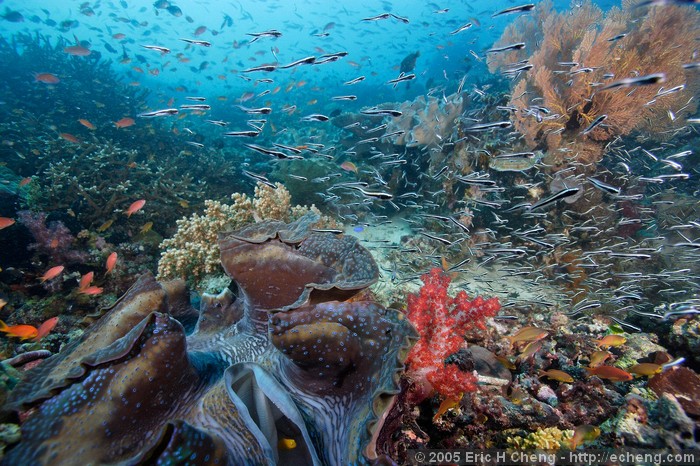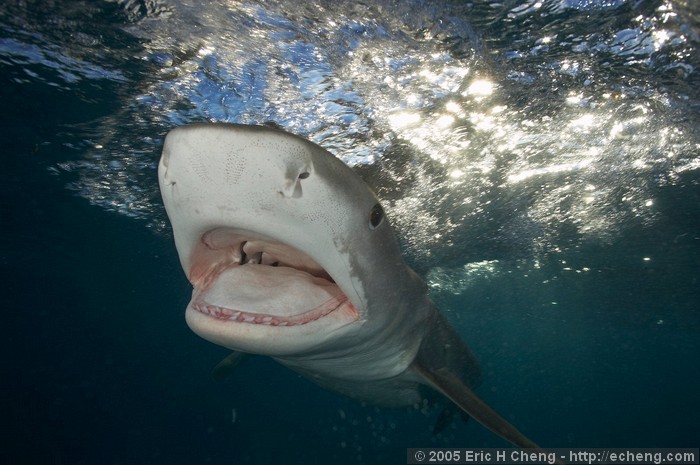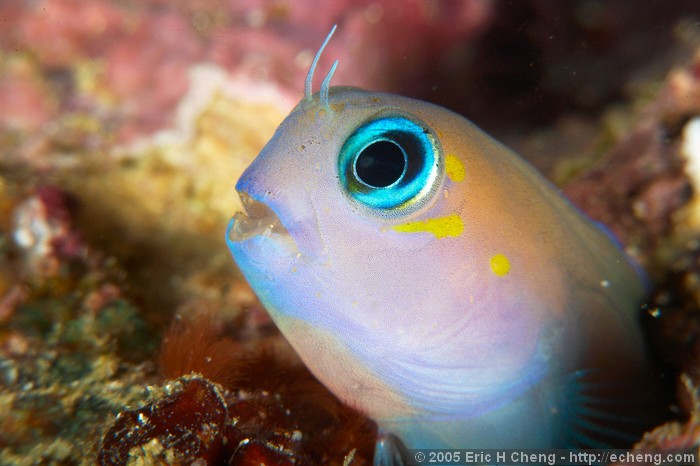




 |
 |
 |
 |
 |
We are trying to develop a community where photographers can come and discuss nature, wildlife and pet photography related matters. We encourage you to enter the forums to discuss this interview as well as to share your photographs and experiences in our forums here at NWP.
This article is Copyright 2005, James Morrissey, and may not, in part or in whole, be reproduced in any electronic or printed medium without prior permission from the author. The images in this article are the property of Eric Cheng and have been licensed to James Morrissey and the NWP Photo Forum for the purpose of this interview.
Part IV: Eric Cheng on the Environment
 |
(c) Eric Cheng
JM: Do you consider yourself an environmental activist? If so, why?
EC: Definitely. Anyone who is frequently on the ocean sees first-hand the devastation we, as humans, are causing out there.
JM: What are the most significant environmental problems that you see coming?
EC: Overfishing is a huge problem in general, but one particular flavor of overfishing that is particularly offensive to me is shark-finning. Shark-finning is not only completely unsustainable, but also extremely cruel and wasteful; sharks are finned while still alive, and then left to die in the ocean. Between 30 and 100 million sharks are killed each year for the Asian shark-fin market. It's almost enough to make me ashamed of my own heritage -- which may sound strange, but is something I've also heard other Asian underwater photographers say.
JM: How have these issues impacted your photographic work?
EC: Definitely. I spent all of December in Irian Jaya, which is just about as far away from everything as you can get. We dove many areas that should have had sharks all all over the place (in particular, high-current, underwater "points"), but after three weeks, we had seen only seen one or two -- really depressing. In April, I dove a pass in the Tuamotus (French Polynesia) that had been cleaned out of sharks only a few months earlier. We saw only a few sharks there (mostly juveniles), but friends who had been there even a year before reported a population of hundreds.
I can't even imagine how people who have been diving for twenty or thirty years feel about the steep decline of our ocean's populations.
JM: Do you feel that the issues you see in the water are similar to the environmental issues we are hearing about on land. If so, how are they similar?
EC: We kill things and pollute, and people only tend to rally for animals that are cute. Although, all of the activism that forced Disney to overturn their decision to serve sharkfin soup at Disney Hong Kong was heartening.
 |
(c) Eric Cheng
JM: What can we do as individuals to be helpful?
EC: An easy thing individuals can do is to be responsible about eating seafood. Boycotting sharkfin soup is a no-brainer, but other decisions are harder. The Seafood Watch page at the Monterey Bay Aquarium's website is a good resource for finding out how to stay healthy and responsible while eating seafood. You can even download a handy reference card to keep in your wallet.
JM: What organizations, if any, do you feel are making successful in-roads on helping the environment?
EC: My favorite ocean conservation organizations are Sea Shepherd and WildAid .
Sea Shepherd takes action when it comes to conservation, stationing boats for patrolling preserves, getting photographers and videographers in front of mass slaughter, and confronting whaling vessels on the open ocean.
WildAid's mission is to end illegal wildlife trade, and has been effective at using the media to get news out to as many people as possible. They are also very efficient as a conservation organization, channelling 100% of donated funds directly into the field.
 |
(c) Eric Cheng
If you would like to see more of Eric's work, please feel free to check out his website at: http://www.wetpixel.com.
As always, we encourage you to come join the community and to be participants in the forums!
 |
 |
 |
 |